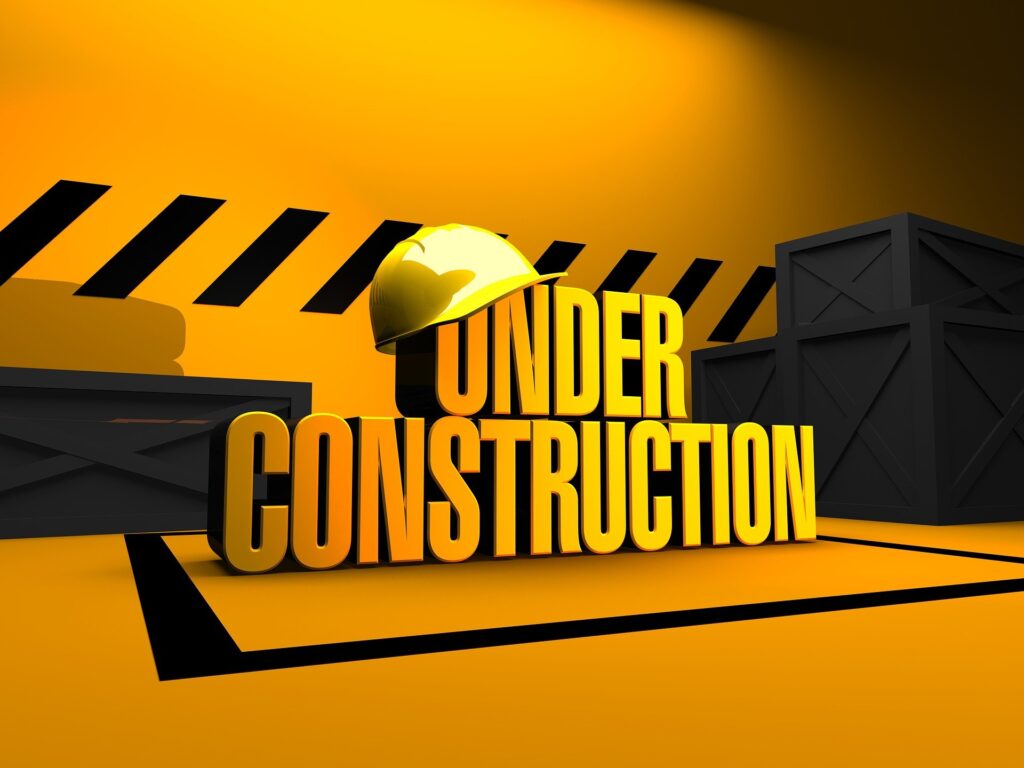
In my last blog post, I discussed what I learned about estate planning from the movie “Top Gun: Maverick” and I mentioned the song by Kenny Loggins, “Danger Zone.” The mere phrase “Danger Zone” got me thinking about what zones exist in estate planning that are danger zones.
Of course, in the “Top Gun” movies, the air combat scenes needed to take place in the “danger zone” of an active combat zone. If not, the combat scenes would have been quite anti-climactic. The jet fighting scenes were quite cool and fun, but that is great for a movie, not for your estate plan. You want to be in a “safe zone” for estate planning, not a “danger zone.”
I can think of several areas where you may find yourself in an estate planning “danger zone.” 
The first, and most obvious to me, danger zone is not having an estate plan at all.
The second, is not having a current estate plan.
And the third is having an incomplete estate plan.
Each zone creates its own dangers and difficulties, but such dangers can be overcome, so that you can find yourself in a safe zone and not in the “danger zone.”
The First Danger Zone – No Estate Plan at All
 If you have no estate plan, then you really are saying you are OK with whatever plan and default rules the state of Colorado has established in the intestate statute, which means to die without a will. If you print out the Colorado intestate statute, it ends up being 60 pages long, with all sorts of rules and scenarios about who gets your assets. If you are married and all of your children are those of both you and your spouse, then your spouse will inherit your assets. But if you, or your spouse, have children not of your spouse, then a complicated formula of the spouse getting a certain amount and the children a different amount comes into play. If you die without a spouse or children, then the intestate statute will look for your closest living relatives, like your parents and siblings to inherit assets. This is often not what people want to have happen, so setting up an estate plan to ensure your assets go where you want them to is more desirable.
If you have no estate plan, then you really are saying you are OK with whatever plan and default rules the state of Colorado has established in the intestate statute, which means to die without a will. If you print out the Colorado intestate statute, it ends up being 60 pages long, with all sorts of rules and scenarios about who gets your assets. If you are married and all of your children are those of both you and your spouse, then your spouse will inherit your assets. But if you, or your spouse, have children not of your spouse, then a complicated formula of the spouse getting a certain amount and the children a different amount comes into play. If you die without a spouse or children, then the intestate statute will look for your closest living relatives, like your parents and siblings to inherit assets. This is often not what people want to have happen, so setting up an estate plan to ensure your assets go where you want them to is more desirable.
Just this past week, I found out that someone I met in a networking group over 10 years ago passed away suddenly. His family called me asking if I had prepared an estate plan for him. I did not. When we were in the networking group together, we had discussed the possibility of setting up an estate plan for him, but he never asked me to prepare the estate plan for him while I was in the networking group, and I had not heard from him after I left the networking group. I had to tell his family that I was not able to help them now that the person had passed away. The family told me that he had been very secretive about setting up an estate plan, even from his wife. They were searching for an estate plan to know what to do with his assets, but if they cannot find his estate plan, then they will need to rely on the default rules and procedures of the Colorado intestate statute, and I told them as much.
If you cannot find your estate plan, or your family cannot find your estate plan after you die, that is nearly the same as not having an estate plan. Although it may not be the most pleasant conversation to have, you don’t want to leave your family in the dark about your estate plan. At a minimum, tell them where you keep it, or how to find the estate plan when you have it created. I recommend giving a copy of the estate plan to the person who is in charge of carrying out your instructions, and letting that person know where to find the original documents, to avoid this type of situation. You want to keep your estate plan somewhere safe, but findable. That way, your family can implement your estate plan after you pass away.
The Second Danger Zone – Not Having A Current Estate Plan
 I have previously written about needing to update your estate plan, but is again worth mentioning in this blog post. At the risk of stating the obvious, life is not always the same. I only need to look at my own life to see this: I am now an adult, with three children, all of whom are still minors. When I was growing up, I really had no concept of what an estate plan was, or why I may need one, as that is not a concern of a child. When I went off to college and law school, I had very little in the day of assets – maybe some dishes and some furniture and a car, but that was about it. When I first got married, and we had our very young children, I was most concerned about who would raise my children. I am still concerned about that, but now I also have a house, life insurance, and assets that I need to be concerned about when I pass away. I am also just a couple of years away from sending my oldest child off to college, and then life will change again. I see my parents who have retired, and their life is different now than it was when I lived at home. These different life circumstances dictate changes in your estate plan.
I have previously written about needing to update your estate plan, but is again worth mentioning in this blog post. At the risk of stating the obvious, life is not always the same. I only need to look at my own life to see this: I am now an adult, with three children, all of whom are still minors. When I was growing up, I really had no concept of what an estate plan was, or why I may need one, as that is not a concern of a child. When I went off to college and law school, I had very little in the day of assets – maybe some dishes and some furniture and a car, but that was about it. When I first got married, and we had our very young children, I was most concerned about who would raise my children. I am still concerned about that, but now I also have a house, life insurance, and assets that I need to be concerned about when I pass away. I am also just a couple of years away from sending my oldest child off to college, and then life will change again. I see my parents who have retired, and their life is different now than it was when I lived at home. These different life circumstances dictate changes in your estate plan.
Since I have minor children, I need to have a guardian named to raise the children if both I and my wife are not around to do so. I also set up a trust for my children, so that money will not be given to them outright when I pass away, but rather I have other adults who will control the money and use it wisely for my children. These things will probably not be what I need to do when my children are fully grown and can handle their own assets. Instead, I can revise my will and trust to allow the children the chance to control their own inheritance. Similarly, when your life circumstances change, you want to revise your will.
You don’t want to be stuck with someone who is deceased or otherwise incapable of handling your affairs after you die in an old, outdated estate plan. You also don’t want to have old distribution patterns, or obsolete distribution provisions in your estate plan that might cause confusion or delays in transferring assets to your spouse, children, or other heirs. Instead, you want to update your estate plan periodically, so that you have a correct, and up to date estate plan. Since estate plans do not expire, you don’t want to assume your old estate plan just goes away; it does not. Instead, you want to have a current estate plan to address your current situation.
The Third Danger Zone – An Incomplete Estate Plan
 An estate plan is not just to say what happens to your assets after you pass away. Instead, you need to plan for the rest of your life. You need to have a financial power of attorney and medical power of attorney to allow someone to make financial or medical decisions for you if you were to become incapacitated. Many people erroneously think that if they name someone to be in charge of things in a will, then that person will be able to act on their behalf in a period of incapacity. That is simply not true. You need a financial power of attorney and medical power of attorney to cover the situation where you are alive, but incapacitated.
An estate plan is not just to say what happens to your assets after you pass away. Instead, you need to plan for the rest of your life. You need to have a financial power of attorney and medical power of attorney to allow someone to make financial or medical decisions for you if you were to become incapacitated. Many people erroneously think that if they name someone to be in charge of things in a will, then that person will be able to act on their behalf in a period of incapacity. That is simply not true. You need a financial power of attorney and medical power of attorney to cover the situation where you are alive, but incapacitated.
You also should create a living will or advanced directive to address the situation where you are on life support, but will not recover. To continue life support or other medical treatment, or discontinue life support or other medical treatment in this situation is quite emotional and difficult. It is far better to decide what you want, and write it down in the proper form, long before the powerful, raw, emotions of such a situation arise. The living will, financial power of attorney, and medical power of attorney are all important components of a complete estate plan.
An estate plan is also written to cover all of the assets you have, but does not necessarily need to contain a list of all of the assets. Your assets can change over time, and if you have a certain asset, like a house or life insurance policy, that needs to go to a specific place, then you want to make sure that asset is specifically designated to go to that person in the correct part of your estate plan. A will or a trust is not the only place that can designate where assets go after your death. Life insurance policies have beneficiary designations, as do retirement plans, so you want to make sure all of those places agree on where assets should go, otherwise there can be conflict and disagreements, which can impact your assets getting where you want them to go. You want your entire estate plan to work together and not contradict itself.
Working With an Experienced Estate Planning Attorney Can Help You Avoid the Danger Zones
 If you try to set up an estate plan on your own, you can certainly set everything up to work together and avoid internal conflicts in your estate planning documents. However, if not everything in your estate plan was set up at the same time, inconsistencies can creep in without you realizing they exist. When you work with an experienced estate planning attorney, the attorney can eliminate internal conflict in the documents and help you know where to look to make sure the assets that have beneficiary designation are all doing the same thing. An experienced estate planning attorney can help you look into potential problems before you pass away, and can help you see potential problems you may not have noticed. To make an appointment to talk to an experienced estate planning attorney, you can go here.
If you try to set up an estate plan on your own, you can certainly set everything up to work together and avoid internal conflicts in your estate planning documents. However, if not everything in your estate plan was set up at the same time, inconsistencies can creep in without you realizing they exist. When you work with an experienced estate planning attorney, the attorney can eliminate internal conflict in the documents and help you know where to look to make sure the assets that have beneficiary designation are all doing the same thing. An experienced estate planning attorney can help you look into potential problems before you pass away, and can help you see potential problems you may not have noticed. To make an appointment to talk to an experienced estate planning attorney, you can go here.

 720-730-7274
720-730-7274









